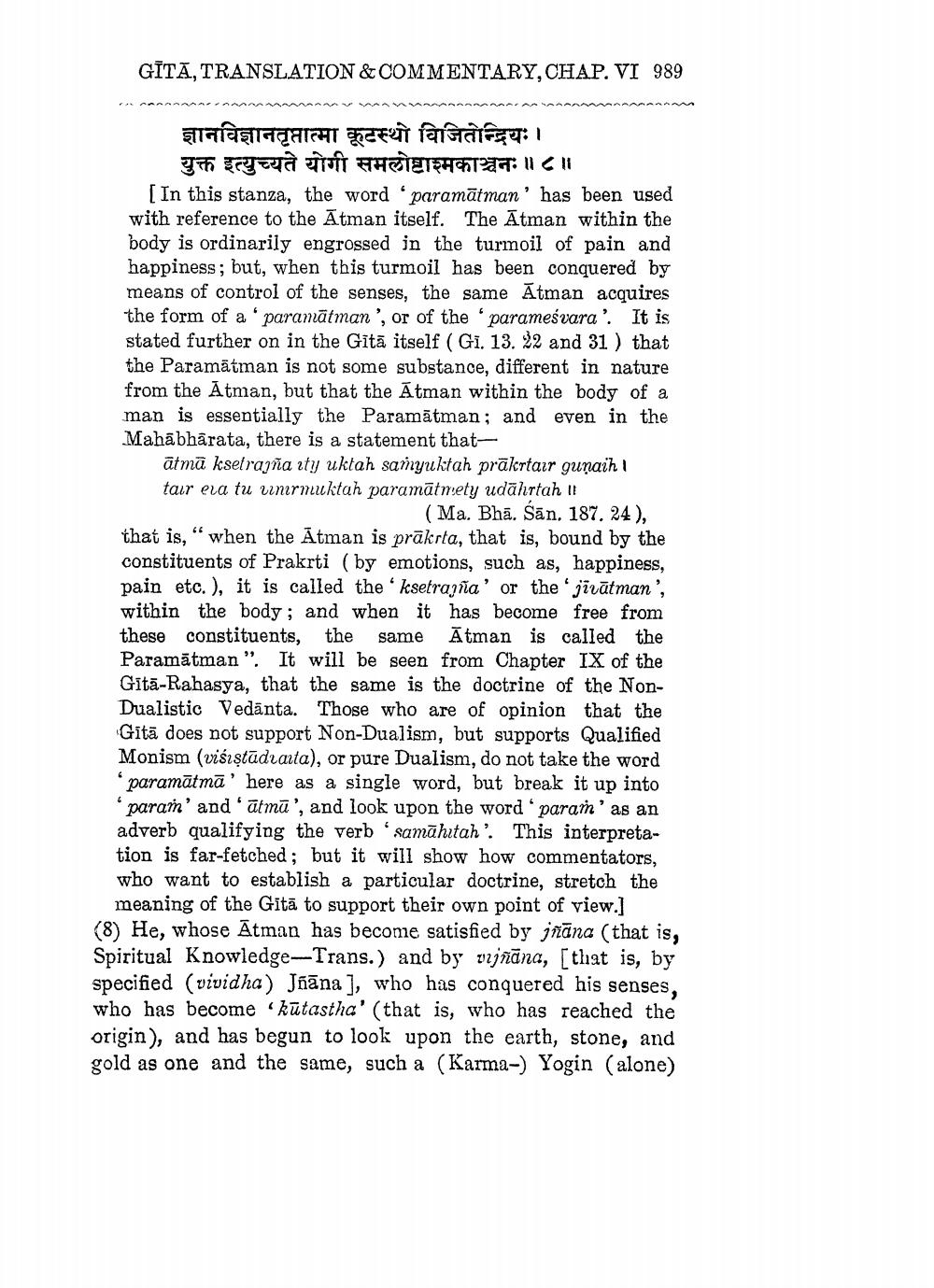________________
GITA, TRANSLATION & COMMENTARY, CHAP. VI 989
wwwwww.a
~~~~~rminu.
ज्ञानविज्ञानतृप्तात्मा कूटस्थो विजितेन्द्रियः । युक्त इत्युच्यते योगी समलोष्टाश्मकाञ्चनः ॥ ८ ॥
^^^^^
[In this stanza, the word 'paramātman' has been used with reference to the Atman itself. The Atman within the body is ordinarily engrossed in the turmoil of pain and happiness; but, when this turmoil has been conquered by means of control of the senses, the same Atman acquires the form of a 'paramätman', or of the paramesvara". It is stated further on in the Gits itself (GL. 13. 22 and 31) that the Paramätman is not some substance, different in nature from the Atman, but that the Atman within the body of a man is essentially the Paramätman; and even in the Mahabharata, there is a statement that
ātmā ksetrajña ty uktah samyuktah prakrtair gunaih tair eva tu umrmuktah paramatmety udährtah !! (Ma. Bha. San. 187. 24), that is, "when the Atman is prakrta, that is, bound by the constituents of Prakrti (by emotions, such as, happiness, pain etc.), it is called the 'ksetrayña' or the 'jivätman', within the body; and when it has become free from these constituents, the same Atman is called the Paramätman". It will be seen from Chapter IX of the Gita-Rahasya, that the same is the doctrine of the NonDualistic Vedanta. Those who are of opinion that the Gita does not support Non-Dualism, but supports Qualified Monism (visistädrata), or pure Dualism, do not take the word paramālmā' here as a single word, but break it up into parain' and' atmā', and look upon the word 'parath' as an adverb qualifying the verb 'samahutah. This interpretation is far-fetched; but it will show how commentators, who want to establish a particular doctrine, stretch the meaning of the Gita to support their own point of view.] (8) He, whose Atman has become satisfied by jñāna (that is, Spiritual Knowledge-Trans.) and by vijnana, [that is, by specified (vividha) Jñana ], who has conquered his senses, who has become kütastha' (that is, who has reached the origin), and has begun to look upon the earth, stone, and gold as one and the same, such a (Karma-) Yogin (alone)




